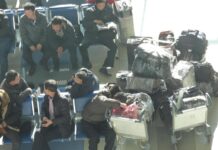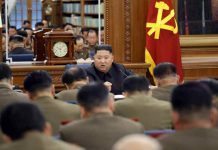With this year’s agricultural production falling far below expectations, North Korean authorities appear willing to expand the number of grain import permits given to provincial trading companies.
According to a Daily NK source in North Korea on Tuesday, North Korean authorities recently told provincial trading companies that “they would permit them to take part in trade if they can import rice or corn.”
Accordingly, the Ministry of External Economic Relations — North Korea’s trade ministry — is screening trade permits for trading companies that have submitted plans to import grain.
While provincially-based trading companies are the entities stepping up to import grain, agricultural agencies like farm management committees and collective farms were the entities that actually requested the rice and corn imports.
The source said state-run food shops have instructed regional agricultural agencies to deliver enough grain to sell for the next six months, but agencies unable to deliver the requested grain are asking trading companies to import the amount needed.
North Korean authorities have also determined that they will be unable to supply grain on their own due to shortfalls in agricultural production. They have instructed the Ministry of External Economic Relations to provide as many trade permits as possible to trading companies with records of successful import activities and connections in China who can deliver the needed grain.
WILL THE DOOR TO TRADE FLING WIDE OPEN NEXT YEAR?
Meanwhile, some North Koreans expect that from next year, trading companies in Yanggang Province and North Hamgyong Province will be able to trade with China like they did prior to the COVID-19 pandemic.
Although over 90% of the country’s total trade has been conducted by cargo ship through ports such as Nampo or Songnim since the North Korean authorities sealed the border with China in January 2020, some people believe that trade may soon be expanded to overland routes.
With trade expectations on the rise, the exchange rates for the dollar and yuan are climbing.
In fact, the dollar was trading at KPW 8,400 in Pyongyang as of Nov. 27, a yearly high.
In December of last year and January of this year, with expectations for expanding trade plummeting due to the continued closure of the border, the dollar had fallen to KPW 4,700–4,800 in Pyongyang.
Meanwhile, if overland trade with China expands, private sector traders may attempt to engage in smuggling while participating in official trade activity.
Daily NK’s source said trade management committees are saying they will allow private traders to take part in trade “just as long as they accurately report to the state their import lists and totals.”
“However, I understand that the authorities have set a policy mandating that they pay 20% of their import total in taxes,” he added.
Please direct any comments or questions about this article to dailynkenglish@uni-media.net.



















